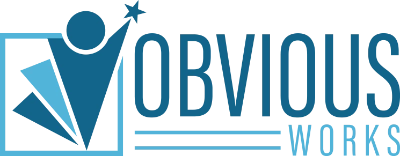Implementing and managing IT systems in clinics and hospitals is a complex task that requires maximum precision and adaptability. This is where Certified Agile Requirements Specialists (CARS) come into play. CARS are professionals whose specialized training and certification in agile methods and requirements engineering, especially in agile environments, enable them to manage projects efficiently and effectively. They can play a crucial role in the healthcare sector, especially in the IT of clinics and hospitals.
Overview
- Introduction
- What is a Certified Agile Requirements Specialist (CARS)?
- Advantages of CARS in clinic and hospital IT
- Application of CARS in practice
- Personal experience report
- FAQ
- Conclusion
Introduction
The IT infrastructure in hospitals is essential for the smooth running of daily operations. It encompasses everything from managing patient data and supporting medical equipment to optimizing operational processes. Errors in these systems can have serious consequences. It is therefore essential that the requirements for the IT systems are precise, clearly defined and flexibly adaptable. Certified Agile Requirements Specialists (CARS) offer significant advantages here.
What is a Certified Agile Requirements Specialist (CARS)?
Certified Agile Requirements Specialists are experts who are specially trained in the areas of agile requirements engineering and agile methods. Their training includes:
- Requirements EngineeringThe ability to define precise and clear requirements that reflect the needs of users and stakeholders.
- Agile methodsThe application of agile principles such as Scrum or Kanban to create flexible and adaptable processes.
- Communication skillsEffective communication with various stakeholders to ensure that the solutions developed meet the requirements.
This combination makes CARS particularly suitable for dynamic and complex environments such as IT in hospitals.
Advantages of CARS in clinic and hospital IT
1. precise definition of requirements
In hospitals, requirements often change quickly due to new medical findings or regulatory changes. With their expertise in requirements engineering, CARS can ensure that the requirements are precisely recorded and documented. This minimizes misunderstandings and reduces the risk of undesirable developments.
2. flexibility and adaptability
Agile methods, which are used by CARS, promote iterative development and continuous feedback. This means that adjustments and improvements can be implemented quickly without disrupting the overall development process. This flexibility is particularly important in the fast-paced medical environment.
3. improvement of communication
CARS often act as a bridge between the IT teams and the medical staff. They are able to communicate technical requirements in an understandable way and ensure that all stakeholders have a common understanding of the solution being developed. This promotes collaboration and ensures that the IT systems meet the actual needs of the users.
4. quality assurance
By using agile methods, CARS can continuously monitor and ensure the quality of the IT solutions developed. Regular checks and adjustments during the development process lead to more robust and reliable systems.
Application of CARS in practice
Case study: Implementation of a new patient administration system
A hospital is planning to implement a new patient administration system. The requirements for this system are complex and include:
- Integration with existing systems and medical devices
- Compliance with the data protection guidelines
- Ease of use & efficiency for medical staff
A CARS takes on the role of requirements engineer and agile coach in this project. He starts by gathering requirements through interviews with the medical staff and IT administrators. These requirements are translated into user stories that are easy to understand and serve as the basis for development.
During the development process, CARS uses Scrum to ensure that regular feedback loops are built in. This allows the team to react quickly to changes and ensure that the end product meets the needs of the users. Quality is continuously monitored and improved through regular sprint reviews and retrospectives.
Case study: Optimization of IT security measures
Another example is the optimization of IT security measures in a hospital. Here, it must be ensured that sensitive patient data is protected and that accessibility for authorized users is guaranteed at the same time.
The CARS first analyzes the current security measures and identifies weaknesses. It then works with the IT security team to develop a set of requirements for the new security solutions. These requirements are implemented in an agile framework, with regular testing and adjustments to ensure that the solutions are both secure and user-friendly.
Personal experience report
Recently, two of our trainers from Obvious Works had the opportunity to provide CARS training at a clinic in Cottbus to hold. The stay was a complete success in every respect. The trainers reported a very engaged and inquisitive group of participants who were open to new methods and approaches. The collaboration with the clinical staff was excellent and there was a productive exchange of best practices in requirements engineering and agile methodology.
In addition to their professional experience, our trainers were also able to Cottbus enjoy. The historic old town, the friendly people and the culinary highlights left a lasting impression. They were particularly impressed by the hospitality and the clinic's interest in continuously improving the quality of its IT systems through the use of agile methods.
The positive feedback from the participants and the visible progress made during the training once again confirmed the added value that CARS can bring to clinic and hospital IT. Our trainers left Cottbus with many new impressions and the certainty that they had made a valuable contribution to optimizing the IT processes in this clinic.
FAQ
1. what distinguishes a CARS from a traditional requirements engineer?
A CARS is specially trained in agile methods and can therefore react more flexibly and adaptably to changes. This is particularly advantageous in dynamic environments such as hospital IT.
2. how can a CARS improve communication within the project team?
Through their training in communication strategies, CARS can act as an intermediary between technical and non-technical stakeholders and ensure that all parties involved have a common understanding of the project requirements.
3. are CARS only suitable for IT projects in the healthcare sector?
No, CARS can be used in all industries and projects that require precise requirements definition and flexible adaptation to change. However, their skills are particularly valuable in complex and dynamic environments such as healthcare IT.
4. how do CARS support quality assurance in IT projects?
By applying agile methods, CARS ensure that regular reviews and adjustments are built into the development process, resulting in more robust and reliable IT solutions.
Conclusion
Certified Agile Requirements Specialists (CARS) can offer considerable added value in clinic and hospital IT. With their ability to define precise requirements, react flexibly to changes and improve communication between different stakeholders, they make a significant contribution to the successful implementation of IT projects. Their expertise in agile methods and requirements engineering ensures that the systems developed not only meet current but also future requirements.
For hospitals and clinics, this means that they can continuously improve and adapt their IT infrastructure to meet the ever-changing requirements of the healthcare sector.
Michael (RE-Agilist)
Michael infects you with his passion. With a smile on his face and a large portion of friendliness, he will help you, your team and your company move forward.
About Michaels Trainer profile
To his LinkedIn profile



